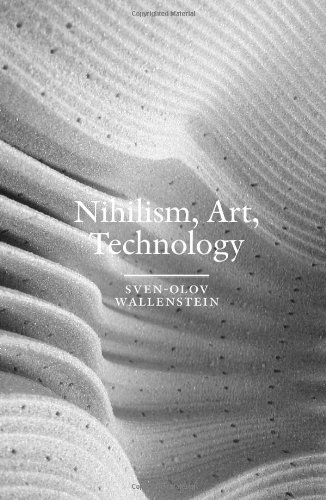K. G. Beauchamp: Exhibiting Electricity (1997)
Filed under book | Tags: · 1800s, 1900s, electricity, engineering, exhibition, history of science, history of technology, machine, science, technology, telegraphy

“This unusual book traces the history of public and technical exhibitions, from their origins in the late 18th century to present day, and, particularly, how they have reflected the progress of science and technology (especially electrical technology). Not only does the author show how electrical innovation and manufacture have been presented to the wider public through this period, but he also shows how the exhibitions themselves have required technological advice. It is through this combination of roles that the importance of these exhibitions within scientific and technological advance can be understood.”
Publisher Institution of Electrical Engineers, 1997
IEEE History of Technology Series, Volume 21
ISBN 0852968957, 9780852968956
352 pages
review (Bernard S. Finn, Technology and Culture)
review (Iwan Rhys Morus, The British Journal for the History of Science)
Sven-Olov Wallenstein: Nihilism, Art, and Technology (2010)
Filed under thesis | Tags: · aesthetics, architecture, art, art history, avant-garde, nihilism, philosophy, technology

Beginning in an analysis of three paradigmatic instances of the encounter between art and technology in modernism—the invention of photography, the step beyond art in Futurism and Constructivism, and the interpretation of technology in debates on architectural theory in the 1920s and ’30s—this book analyzes three philosophical responses to the question of nihilism—those of Walter Benjamin, Ernst Jünger, and Martin Heidegger—all of which are characterized by an avant-garde sensibility that looks to art as a way to counter the crisis of modernity.
These responses are then brought to bear on the work of the architect Mies van der Rohe, whose “silence”—understood as a withdrawal of language, sense, and aesthetic perception—is analyzed as a key problem in the interpretation of the legacy of modernism. From this, a different understanding of nihilism, art, and technology emerges. These concepts form a field of constant modulation, which implies that the foundations of critical theory must be subjected to a historical analysis that acknowledges them as ongoing processes of construction, and that also accounts for the capacity of technologies and artistic practices to intervene in the formation of philosophical concepts.
Originally presented as a compilation thesis in theoretical philosophy, the work was published as a book by Axl Books in 2011.
Doctoral Thesis
Department of Philosophy, Stockholm University, 2010
ISBN 9789174470734
92 pages
Publisher (Thesis)
Publisher (Book)
PDF (Thesis; without images)
Comment (0)Ulises Ali Mejias: Off the Network: Disrupting the Digital World (2013)
Filed under book | Tags: · activism, internet, liberation technologies, networks, social media, technology

The digital world profoundly shapes how we work and consume and also how we play, socialize, create identities, and engage in politics and civic life. Indeed, we are so enmeshed in digital networks—from social media to cell phones—that it is hard to conceive of them from the outside or to imagine an alternative, let alone defy their seemingly inescapable power and logic. Yes, it is (sort of) possible to quit Facebook. But is it possible to disconnect from the digital network—and why might we want to?
Off the Network is a fresh and authoritative examination of how the hidden logic of the Internet, social media, and the digital network is changing users’ understanding of the world—and why that should worry us. Ulises Ali Mejias also suggests how we might begin to rethink the logic of the network and question its ascendancy. Touted as consensual, inclusive, and pleasurable, the digital network is also, Mejias says, monopolizing and threatening in its capacity to determine, commodify, and commercialize so many aspects of our lives. He shows how the network broadens participation yet also exacerbates disparity—and how it excludes more of society than it includes.
Uniquely, Mejias makes the case that it is not only necessary to challenge the privatized and commercialized modes of social and civic life offered by corporate-controlled spaces such as Facebook and Twitter, but that such confrontations can be mounted from both within and outside the network. The result is an uncompromising, sophisticated, and accessible critique of the digital world that increasingly dominates our lives.
Publisher University of Minnesota Press, 2013
Electronic Mediations series, Volume 41
Creative Commons Attribution NonCommercial NoDerivs License
ISBN 0816679002, 9780816679003
193 pages

